第12章
No objection could be raised to these inferences. So by the end of the month of November 1819, at the time when the curtain rises on this drama, every one in the house had come to have a very decided opinion as to the poor old man. He had never had either wife or daughter; excesses had reduced him to this sluggish condition; he was a sort of human mollusk who should be classed among the capulidoe, so one of the dinner contingent, an employe at the Museum, who had a pretty wit of his own. Poiret was an eagle, a gentleman, compared with Goriot. Poiret would join the talk, argue, answer when he was spoken to; as a matter of fact, his talk, arguments, and responses contributed nothing to the conversation, for Poiret had a habit of repeating what the others said in different words; still, he did join in the talk; he was alive, and seemed capable of feeling; while Father Goriot (to quote the Museum official again) was invariably at zero--Reaumur.
Eugene de Rastignac had just returned to Paris in a state of mind not unknown to young men who are conscious of unusual powers, and to those whose faculties are so stimulated by a difficult position, that for the time being they rise above the ordinary level.
Rastignac's first year of study for the preliminary examinations in law had left him free to see the sights of Paris and to enjoy some of its amusements. A student has not much time on his hands if he sets himself to learn the repertory of every theatre, and to study the ins and outs of the labyrinth of Paris. To know its customs; to learn the language, and become familiar with the amusements of the capital, he must explore its recesses, good and bad, follow the studies that please him best, and form some idea of the treasures contained in galleries and museums.
At this stage of his career a student grows eager and excited about all sorts of follies that seem to him to be of immense importance. He has his hero, his great man, a professor at the College de France, paid to talk down to the level of his audience. He adjusts his cravat, and strikes various attitudes for the benefit of the women in the first galleries at the Opera-Comique. As he passes through all these successive initiations, and breaks out of his sheath, the horizons of life widen around him, and at length he grasps the plan of society with the different human strata of which it is composed.
If he begins by admiring the procession of carriages on sunny afternoons in the Champs-Elysees, he soon reaches the further stage of envying their owners. Unconsciously, Eugene had served his apprenticeship before he went back to Angouleme for the long vacation after taking his degrees as bachelor of arts and bachelor of law. The illusions of childhood had vanished, so also had the ideas he brought with him from the provinces; he had returned thither with an intelligence developed, with loftier ambitions, and saw things as they were at home in the old manor house. His father and mother, his two brothers and two sisters, with an aged aunt, whose whole fortune consisted in annuities, lived on the little estate of Rastignac. The whole property brought in about three thousand francs; and though the amount varied with the season (as must always be the case in a vine- growing district), they were obliged to spare an unvarying twelve hundred francs out of their income for him. He saw how constantly the poverty, which they had generously hidden from him, weighed upon them; he could not help comparing the sisters, who had seemed so beautiful to his boyish eyes, with women in Paris, who had realized the beauty of his dreams. The uncertain future of the whole family depended upon him. It did not escape his eyes that not a crumb was wasted in the house, nor that the wine they drank was made from the second pressing; a multitude of small things, which it is useless to speak of in detail here, made him burn to distinguish himself, and his ambition to succeed increased tenfold.
He meant, like all great souls, that his success should be owing entirely to his merits; but his was pre-eminently a southern temperament, the execution of his plans was sure to be marred by the vertigo that seizes on youth when youth sees itself alone in a wide sea, uncertain how to spend its energies, whither to steer its course, how to adapt its sails to the winds. At first he determined to fling himself heart and soul into his work, but he was diverted from this purpose by the need of society and connections; then he saw how great an influence women exert in social life, and suddenly made up his mind to go out into this world to seek a protectress there. Surely a clever and high- spirited young man, whose wit and courage were set off to advantage by a graceful figure and the vigorous kind of beauty that readily strikes a woman's imagination, need not despair of finding a protectress. These ideas occurred to him in his country walks with his sisters, whom he had once joined so gaily. The girls thought him very much changed.